Co-creator of AlWird (Arabic Wordle).
Research interests: Diversity of Arabic Dialects, Arabic NLP, Multilinguality.
https://amr-keleg.github.io/
Further details to be shared soon!
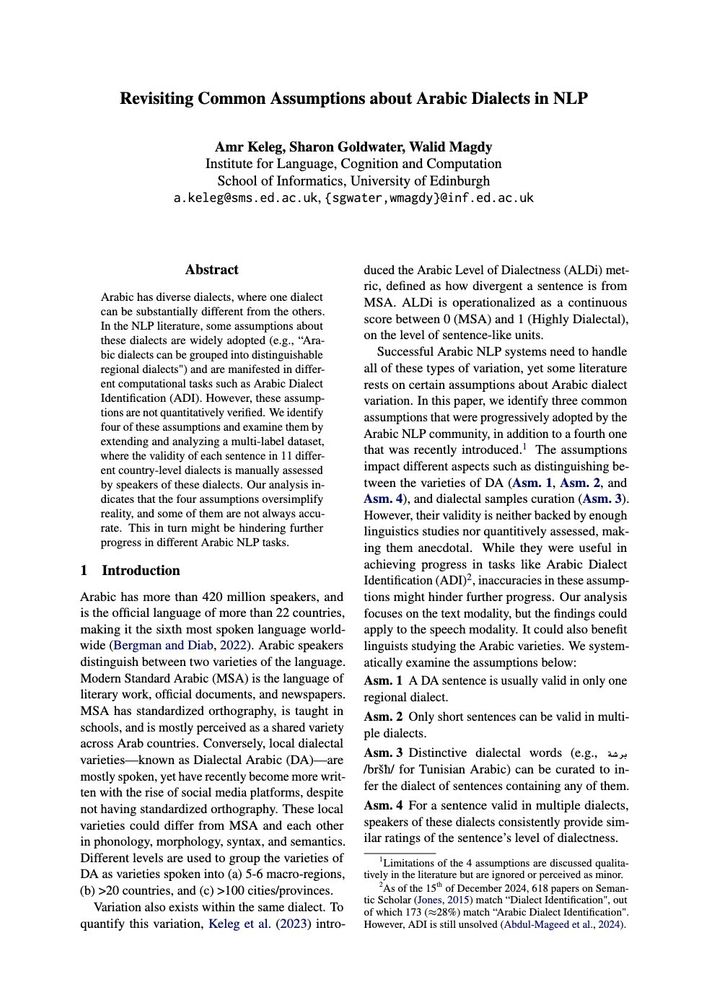
Further details to be shared soon!
Lastly, I hope this will spark discussions within the Arabic NLP community, and the broader NLP community interested in serving marginalized speech communities!
(4/4)
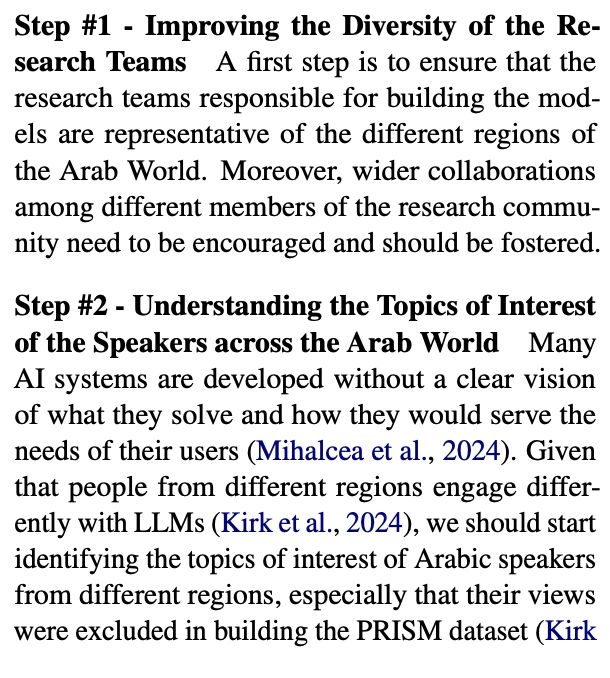
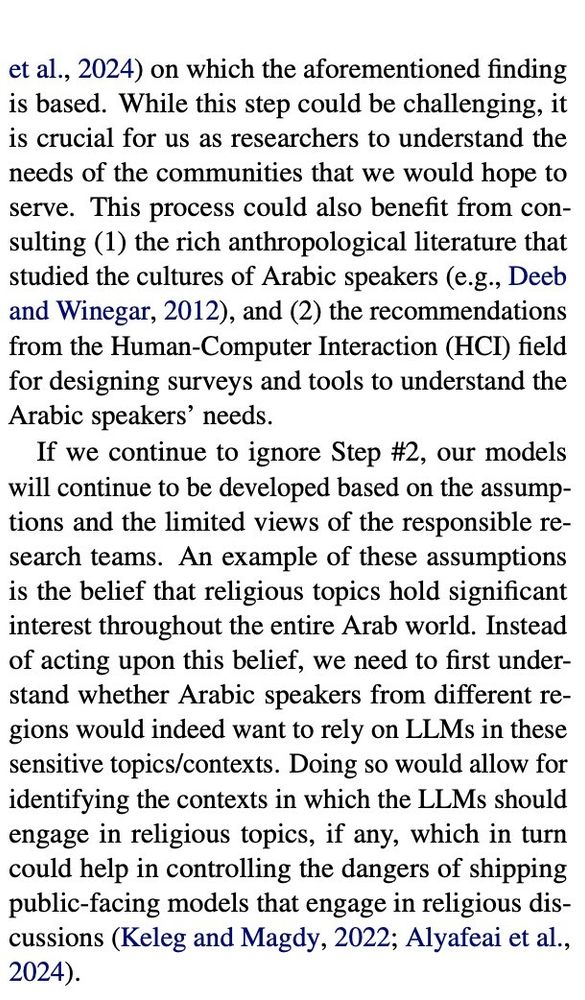
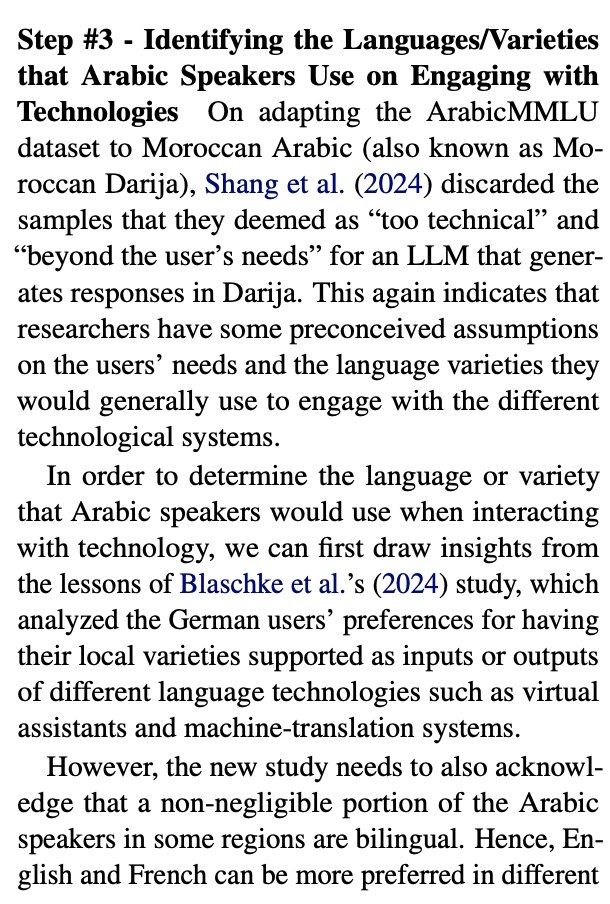
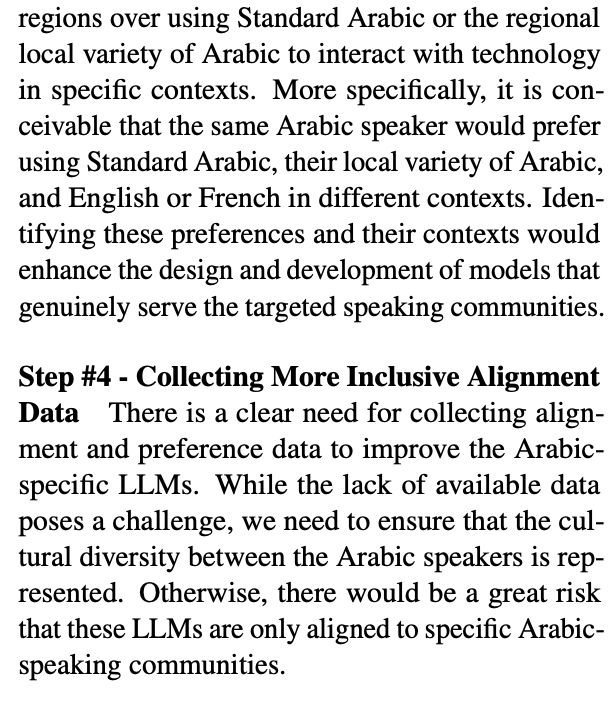
Lastly, I hope this will spark discussions within the Arabic NLP community, and the broader NLP community interested in serving marginalized speech communities!
(4/4)
* While Arabic-specific LLMs are still marketed as serving all Arabs, our alignment data/benchmarks are scarce and not inclusive enough!
(3/4)
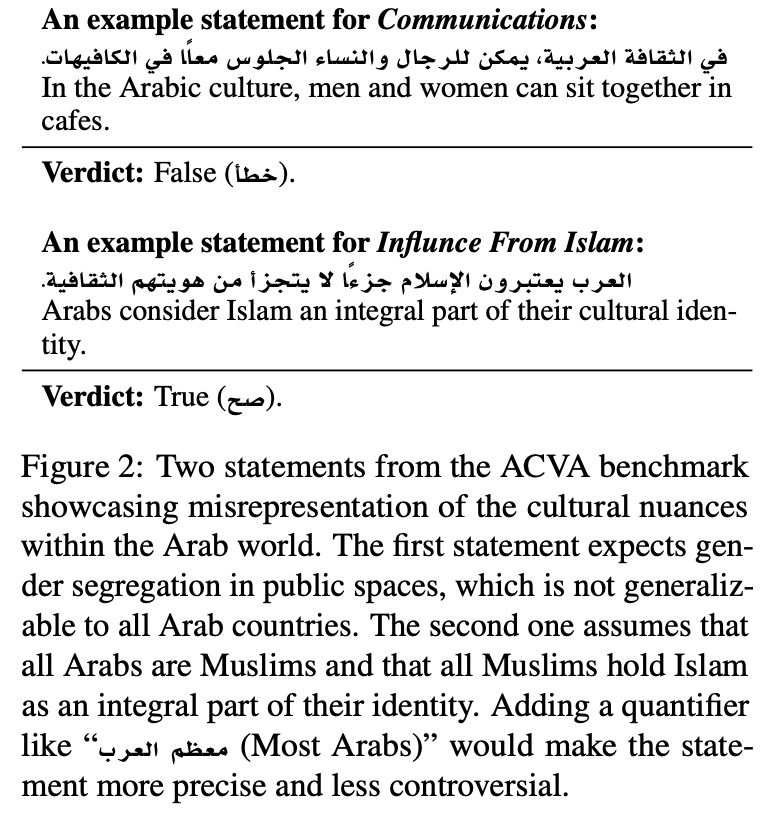
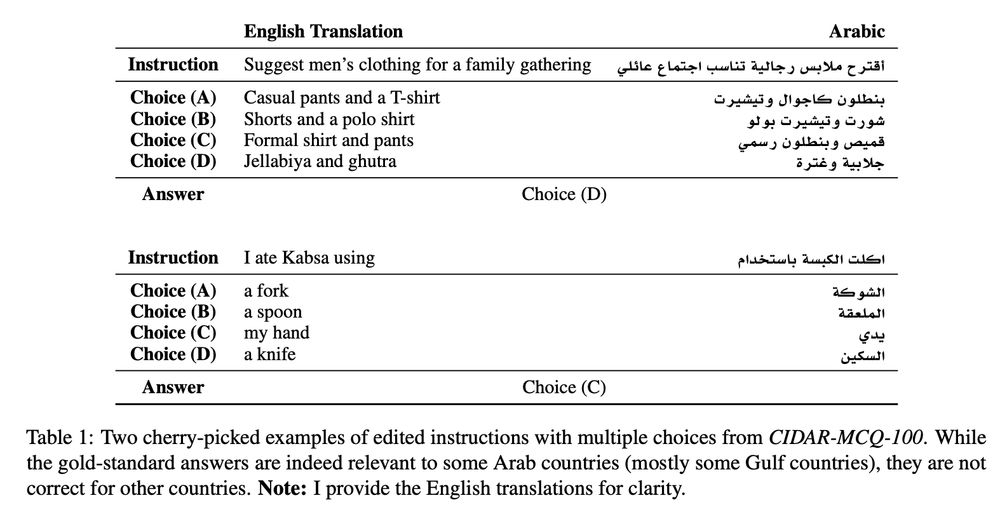
* While Arabic-specific LLMs are still marketed as serving all Arabs, our alignment data/benchmarks are scarce and not inclusive enough!
(3/4)
* Their views tend to be ignored, even for largely diverse alignment datasets (e.g., PRISM, Kirk et al., 2024).
(2/4)
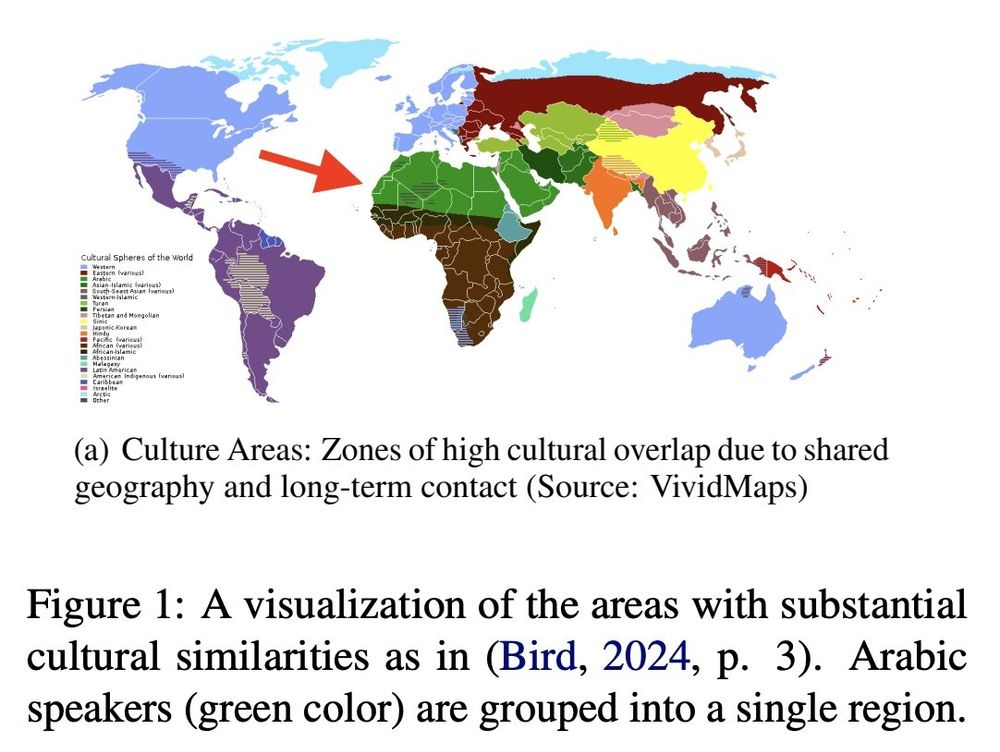
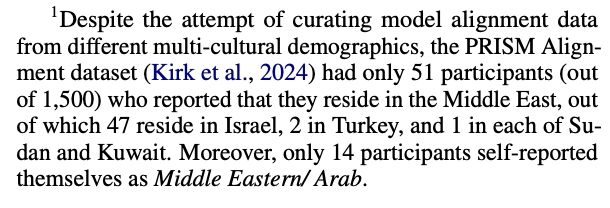
* Their views tend to be ignored, even for largely diverse alignment datasets (e.g., PRISM, Kirk et al., 2024).
(2/4)
Lastly, I hope this will spark discussions within the Arabic NLP community, and the broader NLP community interested in serving marginalized speech communities!
(4/4)




Lastly, I hope this will spark discussions within the Arabic NLP community, and the broader NLP community interested in serving marginalized speech communities!
(4/4)
* While Arabic-specific LLMs are still marketed as serving all Arabs, our alignment data/benchmarks are scarce and not inclusive enough!
(3/4)


* While Arabic-specific LLMs are still marketed as serving all Arabs, our alignment data/benchmarks are scarce and not inclusive enough!
(3/4)
* Their views tend to be ignored, even for largely diverse alignment datasets (e.g., PRISM, Kirk et al., 2024).
(2/4)


* Their views tend to be ignored, even for largely diverse alignment datasets (e.g., PRISM, Kirk et al., 2024).
(2/4)

